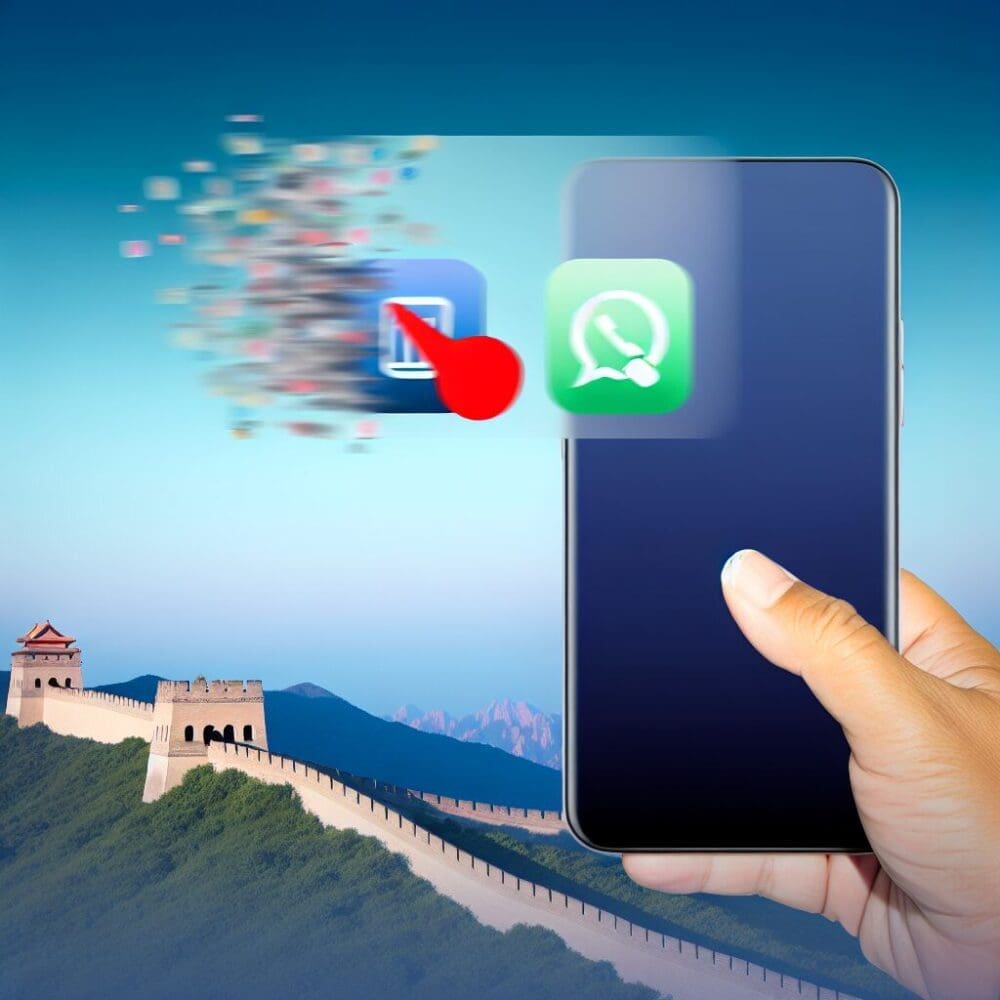“`html
Apple Removes WhatsApp, Threads from China App Store on Beijing’s Orders
In a move that has stirred the tech world, Apple has taken down popular messaging apps WhatsApp and Threads from its China App Store. This action follows direct orders from Beijing, as the Chinese government continues to tighten its grip on digital communications and online activity within its borders. The removal is a significant development in the ongoing complex relationship between global tech giants and restrictive government policies.
Background of the Removal
On Tuesday, Apple confirmed the removal of these apps, emphasizing its compliance with local laws and regulations. This isn’t the first time Apple has faced scrutiny for abiding by government mandates, but the removal of WhatsApp and Threads marks a crucial turning point given the apps’ widespread usage. The following sections will delve into the reasons behind this move, the reactions from stakeholders, and its broader implications.
Government’s Standpoint
Beijing has long been known for its stringent control over internet and digital communications. The country’s “Great Firewall” effectively censors incoming and outgoing data to align with its socio-political ideologies. Here are the core reasons Beijing cited for the app removal:
- Data Security Concerns: The Chinese government alleges that apps like WhatsApp and Threads are vulnerable to data breaches.
- Regulatory Compliance: These apps reportedly failed to adhere to newly established regulations tailored to data privacy and user information security.
- National Security: Authorities argue that foreign communication platforms can pose risks to national security.
Apple’s Response
Apple has released a statement acknowledging the removal of WhatsApp and Threads, citing the need to comply with local laws. The company underscored its commitment to creating the best user experience while adhering to regional regulations. The removal decision reflects Apple’s ongoing challenge in balancing market access and regulatory adherence.
User Reactions
The user community in China and beyond has expressed mixed reactions to the removal. Some users have lauded Apple’s decision to comply with local laws, while others see it as a capitulation that compromises user freedom and privacy. Here’s an overview of the responses:
- Local Users: Many local users feel constrained by the reduced access to global communication platforms, citing limitations to their online freedom.
- Global Audience: There’s noticeable concern among international users about the increased precedence of such actions and what it could mean for global digital freedom.
- Privacy Advocates: Advocacy groups argue that the removal sets a dangerous precedent, underscoring the need for stronger policies protecting user data and freedom.
Implications of the Move
The removal of WhatsApp and Threads from the China App Store has significant implications for various stakeholders:
Impact on Users
One immediate impact is on the daily lives of the users who relied on these apps for communication. Without access to these platforms, many will need to find alternatives, which may not offer the same level of security or user experience. The removal also serves as a reminder of the limitations imposed by government regulations on digital freedoms.
Business and Market Dynamics
For Apple and other tech companies, this move highlights the complexities of operating in restrictive markets. Companies must navigate the fine line between regulatory compliance and offering unrestricted access. The removal could potentially influence Apple’s market strategy in China and other countries with similar regulatory environments.
Policy Considerations
The action by Beijing may prompt other governments to adopt similar measures, which could lead to a more fragmented global digital landscape. This fragmentation poses challenges for global connectivity and user access to information. Policy makers worldwide will need to consider how to address these challenges while ensuring user security and freedom.
Future Prospects
Looking forward, several scenarios could unfold from this development:
- Adoption of Alternative Apps: Users may migrate to other available platforms, potentially giving rise to new market leaders.
- Increased Government Oversight: More countries could follow China’s lead, imposing stringent regulations on digital communication tools.
- Technological Adaptations: Companies might innovate new solutions to balance regulatory compliance with user needs, potentially altering the digital technology landscape.
Global Repercussions
As global eyes watch this development unfold, it underscores the growing tension between national regulations and global digital freedoms. The incident with Apple may also drive a more robust dialogue about protecting user data and maintaining open access to digital platforms.
Conclusion
The decision by Apple to remove WhatsApp and Threads from its China App Store following Beijing’s orders is a significant development in the tech world. While it may ensure compliance with local laws, it underscores the growing challenges tech companies face in balancing corporate responsibility, user freedom, and regulatory adherence. The broader implications of this move will shape the future of digital communication and user privacy for years to come.
“`



